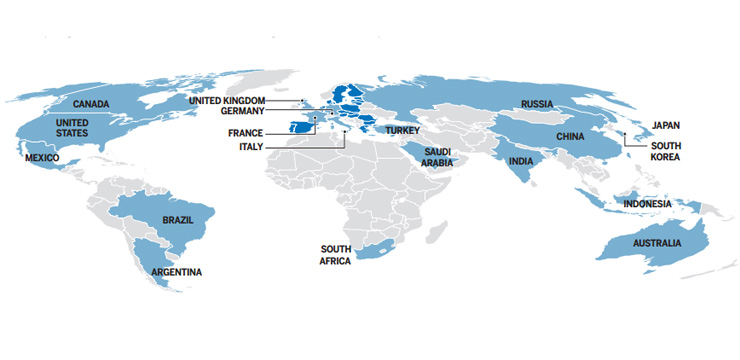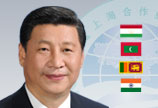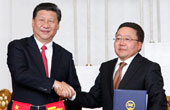Backgrounder: China's links with Brisbane
Major investments have recently emerged from Chinese companies including PetroChina investing significantly in LNG and Baosteel with rail operator Aurizon in Queensland's coal and metals sector.
Other notable Chinese companies investing in Brisbane include China Minmetals Corporation, Chinalco, MMG and Citic Group.
China acquired more than 323 million Australian dollars (280 million US dollars) in land throughout Queensland in 2012 to 13, more than any other foreign country.
Guangzhou Property Group and China Construction Bank have recently entered Brisbane's hotel markets with considerable investments in metropolitan property following growing investment from other regions throughout Asia.
Brisbane is well placed to cater to the growing demands of the Asia Pacific market for the secure supply of high-quality, high- value processed food and beverage products.
China's COFCO has invested significantly in Queensland's agricultural sector including the purchase of Tully Sugar Mill in Northern Queensland.
Chinese based NEW Hope Investment Fund acquired a majority stake in Queensland beef processor and exporter Kilcoy Pastoral Company (KPC).
More than 65 percent of Brisbane's 75,000 international student enrollments are from G20 countries, including G20 guest nations. China is the number one country for international student enrollments in Brisbane.
In the six months to June 2014, there were 8,839 international students from China studying in Brisbane, representing 20 percent of the city's total international student population.
At the University of Queensland Chinese students represent 25 percent of the total number of international students. China has agreed to be involved in the New Colombo Plan from 2015, which will encourage a more genuine two-way flow of students between our countries.
China is the city's second largest international visitor market, accounting for 17.3 percent of all international visitors.
In the year ending March 2014, Brisbane attracted 128,000 visitors from China, a rise of 3.9 percent on the year before. Of these, 86,000 were holiday visitors.
While international visitation to Brisbane declined 2 percent in the year to March 2014, several Asian markets also recorded strong growth over the same period (India 10 percent, Hong Kong 17 percent and Thailand 12 percent). Overall, Chinese visitors stayed a total of three million nights in Brisbane.
Brisbane is very popular with Chinese visitors to Australia, because of its unique combination of natural and leisure experiences, modern infrastructure and opportunities to interact with native wildlife, including koalas and kangaroos.
Brisbane's tourism industry contributes more than 3.3 billion Australian dollars (2.8 billion US dollars) to the city's gross regional product.
Related Stories
Police gear up ahead of G20 summit in Brisbane 2014-11-13 15:31
Backgrounder: Chronology of previous G20 summits 2014-11-14 14:32
Why climate change top G20 economic issue: UN expert 2014-11-14 10:00
G20 expected to OK anti-graft deal 2014-11-14 08:06
G20 to focus on economic growth, not climate change 2014-11-13 14:09
IMF calls on G20 to boost growth 2014-11-13 10:28
Background



